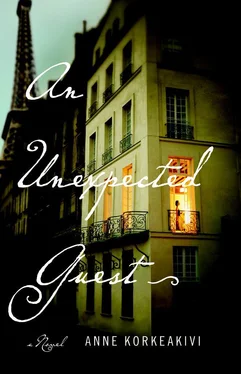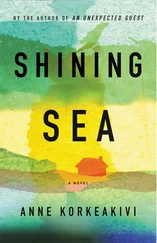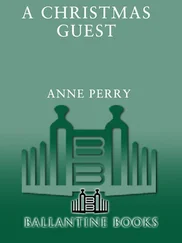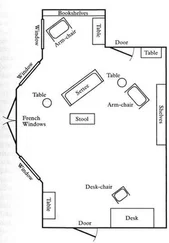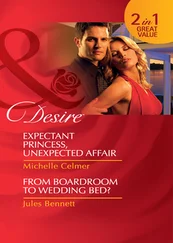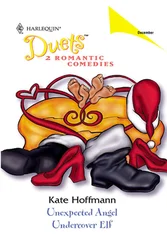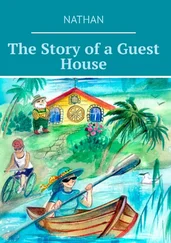“All Irish like music.” He laughed. “I saw you were having people coming round for dinner, and there was a notice for this concert at the museum. I didn’t know it would be so bloody cold. I could have just as well waited on a park bench.”
She shook her head. “The Luxembourg Gardens would be closed. The Rodin also.”
Up against the nearest wall stretched a heavy stone tomb, its contours rubbed away from centuries of frigid obscurity. This was Niall’s life, shadows and austerity. The first time she saw him, he was standing on top of a stone wall in a comfortable suburb outside Boston, the sun playing on his hair, and ever after, she’d had the feeling he was taller than he really was. He hadn’t bothered to hide his disgust for her and her cousin’s ignorance, and she’d taken that to mean he himself knew everything. Sitting beside him in her aunt and uncle’s kitchen, she’d been surprised to look into his face and realize he was barely older than she was. He’d been so young and full of life and promise, not much older than Jamie was now. She’d gained much in the years since — Edward, her children, a world so much bigger than the cloistered one she’d begun with in Connecticut. A world she understood so differently. If only he had.
This is a war, he’d said. He still believed it.
“I need to tell you something,” she said. “I’m glad I lost the money. I’m not saying you were on the wrong side of the argument. I’m just saying I’m glad I don’t have that at least on my conscience.”
Niall let go of her hand. He nodded. “Right. You married a Brit. And not just any Brit either, but a feckin’ servant of the Crown. Diplomatic service.”
“That has nothing to do with it. Edwa — my husband’s a good person.”
“They all…” Niall stopped. “Well. I hope so.”
The church was nearly empty now. Up by the altar, the musicians had returned from the vestry to fold chairs and gather their music stands. The guardian was with them, helping. The church’s bell rang out: midnight.
“Do you know that’s the oldest church bell in Paris?” she said.
Niall studied her. “You always were a clever one,” he said softly for the second time that day. He rose and she followed him out of the pew, out of the church, into the street. The inky night air felt gentle and smooth now, after the cloying damp of the church interior. They walked silently through a narrow alley, absent of street lamps, away from the random sounds of motorcycle and car engines and nightclub music, falling back into a long-buried habit of not speaking until they were no longer within view of others. A stray cat ran in front of them.
I never knew you liked music.
All Irish like music. I saw you were having people coming round for dinner.
She stopped. “What did you mean you saw I was having people round for dinner?”
“I figured you weren’t buying all that cheese and asparagus just for you and your husband. He’s a Prods. You can’t have too many children.”
He had never seen her sons. He didn’t know anything about them. She brushed the air with her hand. “Did you see me buying flowers before that?”
“I saw you come out of a flower shop.”
And so had her Turk. Niall must have seen the Turk also, there, with her, at 10:29 a.m.
“Did you see me talk to someone?”
“A man. And then you were in the shop with a woman. But I’d seen how you go about the city. I thought of the flowers and how they’d come out with the sun shining. I knew this was the day I’d find you in the garden, alone by the statue.”
Niall had seen the Turk, too, yet another horrible quirk of fate. There couldn’t be a worse witness on earth to corroborate her word. Niall. A dead man.
“Never mind him right now,” she said. “Look, I want to help you, and your cousin. But if I gave you money, how could I know it wouldn’t end up in the war coffers now? I mean, if things started up again.” How could she explain to him? The weight that had been lifted from her shoulders this afternoon, all those years of thinking about what she’d helped do. What they’d helped do. “We’re so lucky. God, Niall, we are so lucky. ”
“Lucky? Are you taking the piss out of me?”
“Yes, lucky.”
Niall stopped. He stepped in towards her, letting a bit of the streetlights glance off his profile. He seized her hands and held them to him. In the moonlight, the emerald on her finger sparkled, dark and green as the Atlantic under a troubled sky. “I’m not lucky, Clare. I’m not even alive. ”
The feel of his skin against hers, so rough against her smoothness, the energy within them. Twenty years of his life, wasted.
My green island is on the other side of all that water, he’d said. Then another voice, a smooth, calm one: I trust you.
She withdrew her hands.
There was a flurry of dark wings in the street, only roosting pigeons awakened by their passage, but Niall shied away, receding into a doorway. He was hiding, forever hiding. A younger Niall, with the summer sun bouncing off his dark hair, his white skin; his every movement an expression of committed, concentrated energy. A Niall who, already as a teenager, was prepared to risk his life for what he believed in. She and her youthful crowd had learned to play tennis competitively and read the important tomes by the important Johns: John Maynard Keynes, John Milton, John Quincy Adams. They’d worn the right clothes, seen the right movies, and supported the right political causes. But if something went wrong, it had always been someone else’s mess to clean up.
She stretched her right hand back out.
They both looked at it.
“Take it,” she said.
“Are you trying to buy me off?”
“No. I want to give you something of mine. Because…” She looked away. “I want some part of me to go with you. Look, I know nothing I can give you will equal twenty years of your life. But this is what I have that is mine and mine alone to give. For the first time in decades, I feel hopeful, and I want you to have some hope, too.”
She held her hand out for what seemed like ages, one long hot summer rising between them, twenty-five long cold years pressing back down beside it.
He held her wrist fast as he slid the ring off her finger. He turned it over in his hand, as though he were reading it. One arm looping around in platinum, two posed hands holding a huge heart-shaped emerald betwixt them, secured further by diamonds; how that ring had sparkled on her grandmother’s graceful, slowly aging hand. Go Irish, Granda had said and Yah, I better, Mormor had answered, the start of a love that had seemed to stretch beyond the grave. Every time Clare slid the ring over her finger, she felt the pride her grandfather had had for his motherland in having it made, as well as his pride in the woman who would wear it. All that love. All that certainty. In Niall’s hands now.
“It’s a claddagh,” he said softly.
She nodded. “Yes.”
“That can’t have come from your man.”
“No.”
He examined its deep green edges, felt the smooth of its facets with his thumb. “I’m not fighting anymore, Clare. If you were ever to read about some bastard down Derry way lifted for blowing up a police station, it wouldn’t be me. That much I can tell you.”
She hesitated. “You’re going home.”
He shrugged, held the ring under the light of the street lamp, causing it to sparkle. “If I tried to sell it, they’d think I stole it. Or worse, for both of us, that I blackmailed it out of you. Either way, it could come back to you.”
He didn’t say anything further for a while, and she had no idea what was going through his mind. She wasn’t sure what was going through her own. He looked up, gazing at her face with the same air of appraisal he’d given the emerald. “The British government didn’t give us any other choice, Clare.”
Читать дальше
